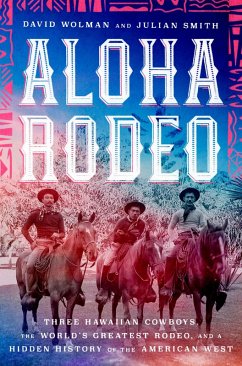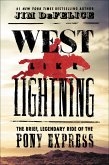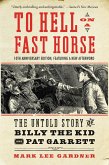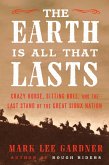An unforgettable human drama set against the rough-knuckled frontier, David Wolman and Julian Smith's Aloha Rodeo unspools the fascinating and little-known true story of the Hawaiian cowboys, or paniolo, whose 1908 adventure upended the conventional history of the American West.
What few understood when the three paniolo rode into Cheyenne was that the Hawaiians were no underdogs. They were the product of a deeply engrained cattle culture that was twice as old as that of the Great Plains, for Hawaiians had been chasing cattle over the islands' rugged volcanic slopes and through thick tropical forests since the late 1700s.
Tracing the life story of Purdy and his cousins, Wolman and Smith delve into the dual histories of ranching and cowboys in the islands, and the meteoric rise and sudden fall of Cheyenne, the Holy City of the Cow. At the turn of the twentieth century, larger-than-life personalities like Buffalo Bill Cody and Theodore Roosevelt capitalized on a national obsession with the Wild West and helped transform Cheyenne's annual Frontier Days celebration into an unparalleled rodeo spectacle, the Daddy of 'Em All.
The hopes of all Hawaii rode on the three riders' shoulders during those dusty days in August 1908. The United States had forcibly annexed the islands just a decade earlier. The young Hawaiians brought the pride of a people struggling to preserve their cultural identity and anxious about their future under the rule of overlords an ocean away. In Cheyenne, they didn't just astound the locals; they also overturned simplistic thinking about cattle country, the binary narrative of cowboys versus Indians, and the very concept of the Wild West. Blending sport and history, while exploring questions of identity, imperialism, and race, Aloha Rodeo spotlights an overlooked and riveting chapter in the saga of the American West.
Dieser Download kann aus rechtlichen Gründen nur mit Rechnungsadresse in A, B, BG, CY, CZ, D, DK, EW, E, FIN, F, GR, HR, H, IRL, I, LT, L, LR, M, NL, PL, P, R, S, SLO, SK ausgeliefert werden.







![A Short History of Reconstruction [Updated Edition] (eBook, ePUB) A Short History of Reconstruction [Updated Edition] (eBook, ePUB)](https://bilder.buecher.de/produkte/42/42026/42026854m.jpg)

